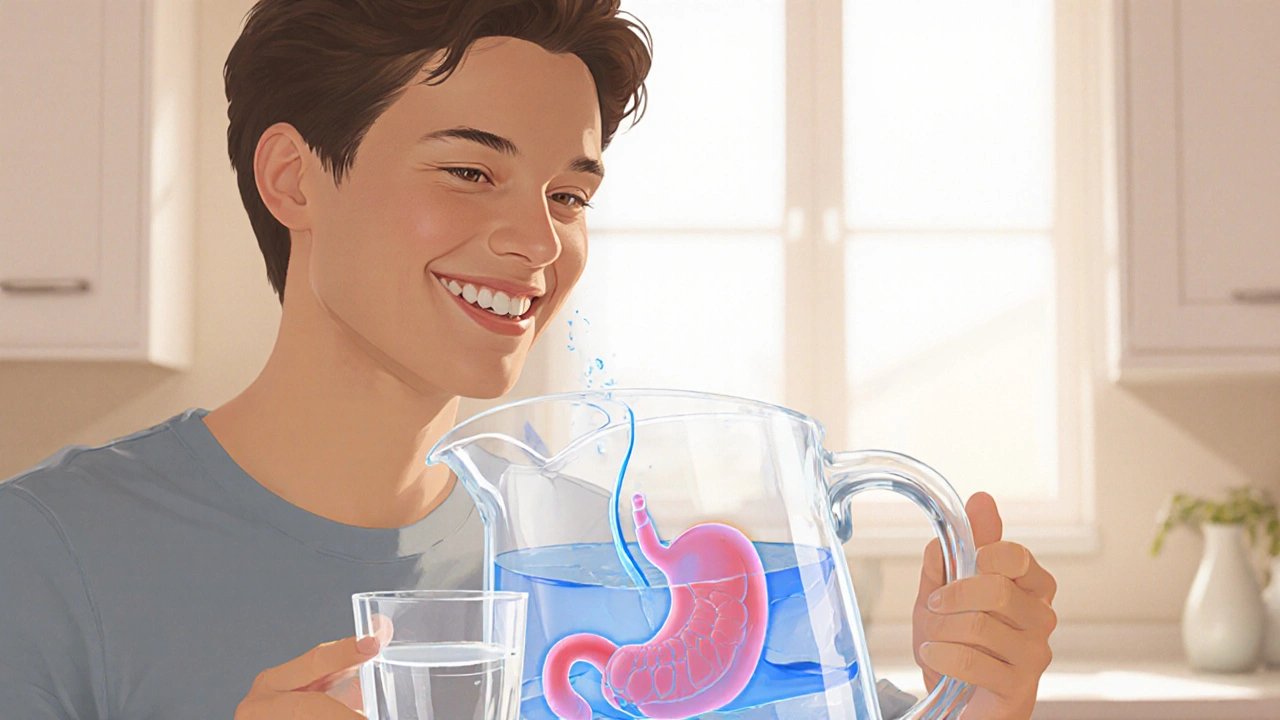Heartburn: Quick Relief, Causes & When to Seek Help
If you’ve ever felt a burning sensation behind your breastbone after a big meal, you know how uncomfortable heartburn can be. It’s a common problem, but the good news is most episodes can be managed with simple steps you can do at home.
What Causes Heartburn?
Heartburn happens when stomach acid slips back up into the esophagus, the tube that carries food to your stomach. Foods that are spicy, fatty, or acidic (like citrus and tomatoes) are usual culprits. Eating large portions, lying down right after a meal, or wearing tight clothing can also push acid upward. Stress doesn’t cause heartburn directly, but it can make your stomach produce more acid, worsening the feeling.
Fast Ways to Ease Heartburn at Home
First, try to stay upright for at least an hour after eating. A short walk helps gravity keep acid down.
Drink a glass of water mixed with a teaspoon of baking soda. It neutralizes acid quickly, but don’t make it a habit because it adds sodium.
Chewing sugar‑free gum for 20 minutes can increase saliva, which washes acid away from the esophagus.
If you need a quick drug, over‑the‑counter antacids like Tums, Maalox, or Mylanta work within minutes. For longer relief, an H2 blocker (e.g., famotidine) or a proton‑pump inhibitor (e.g., omeprazole) taken before meals can reduce acid production.
Adjust your diet: skip coffee, alcohol, chocolate, and mint until the burning stops. Smaller, more frequent meals are easier on your stomach than a few huge plates.
Raise the head of your bed by 6–8 inches. A simple wedge pillow can keep acid from flowing back while you sleep.
When home tricks don’t cut it, it’s time to talk to a professional. Persistent heartburn (more than twice a week) or pain that lasts over a few weeks could signal gastroesophageal reflux disease (GERD) or an ulcer. Seek medical help if you notice difficulty swallowing, weight loss, vomiting, or a sour taste in your mouth that won’t go away.
Doctors may order an endoscopy or prescribe stronger medication. Early treatment can prevent damage to the esophagus and improve quality of life.
Bottom line: most heartburn episodes are manageable with lifestyle tweaks and OTC meds, but don’t ignore ongoing or severe symptoms. Knowing what triggers the burn and having a few quick‑fix tools in your pocket can keep the discomfort from ruining your day.

Hydration's Role in Preventing Heartburn: Why Staying Hydrated Matters
Learn how proper hydration dilutes stomach acid, supports the esophageal sphincter, and prevents heartburn. Practical tips, fluid guidelines, and FAQs help you stay comfortable.